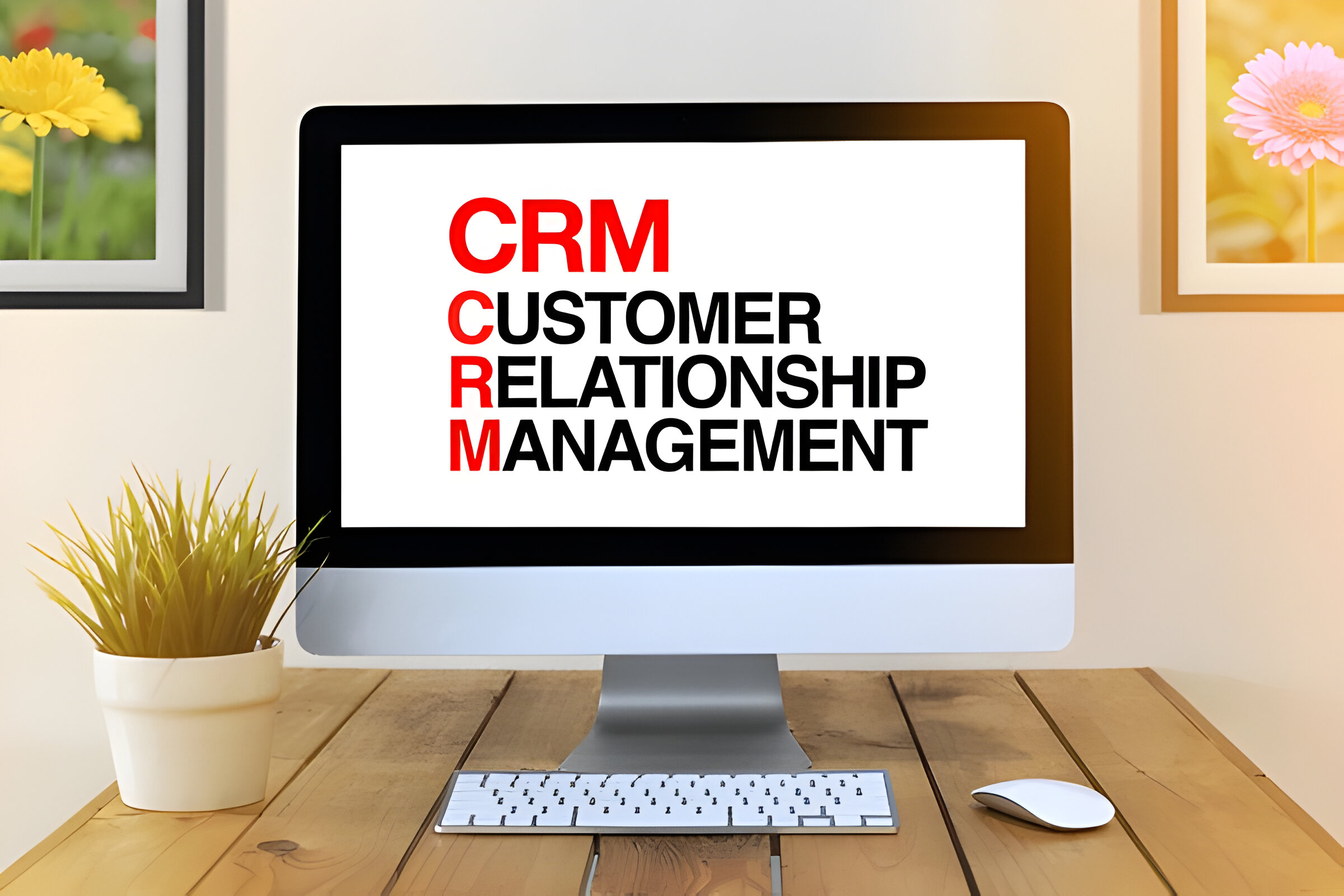In 2025, customer relationship management (CRM) is undergoing a fundamental transformation. The use of artificial intelligence (AI), automation, and advanced data capabilities is setting new standards and opening up innovative ways for companies to better understand and serve their customers. Never before have businesses had such deep insights into their customers' behaviors and desires. Today, CRM goes far beyond simply sending marketing emails and reminding sales staff of upcoming customer appointments. The focus is on multi-channel interactions and hyperpersonalization to meet rising customer expectations while exploring new market potentials. These developments help companies strengthen existing relationships and identify new opportunities in dynamic markets. Learn more about the key CRM trends in 2025 in the following overview.
Table of Contents
● Artificial Intelligence: Limitless Possibilities in CRM
● Social CRM: Being Present Everywhere
● Self-Service CRM: Empowering Customers to Take Action
● Hyper-Personalized CRM: Creating Unique Customer Experiences
● Industry-Specific CRM: Tailored Solutions for Niches
● Ethical CRM: Trust as the Key to Success
● Sustainable CRM: Conserving Resources, Creating Competitive Advantages
● CRM 2025: Automation, AI, and the Human Factor
● Conclusion
● FAQs
Artificial Intelligence: Limitless Possibilities in CRM
According to current Gartner forecasts, the use of artificial intelligence (AI) in CRM systems will increase by over 40% by 2025. Generative AI (GenAI), in particular, will be an indispensable component in the CRM space in the coming year and will revolutionize numerous processes.
The applications of AI in CRM are nearly limitless: it supports sales and marketing teams with routine tasks such as creating emails or logging customer conversations. Additionally, AI elevates process automation to a new level by efficiently handling repetitive tasks. Its greatest potential, however, lies in data analysis: AI can quickly sift through large volumes of data and extract valuable insights for customer retention and acquisition.
However, companies should also be mindful of the downsides of using AI in CRM. Too many automated bots and AI-based customer services can strain customer relationships. Studies show that trust declines when customers knowingly interact with AI rather than a human. This leads to customers feeling less understood and valued.
Therefore, it is crucial to use AI strategically and consciously throughout the customer journey. While AI can assist with simple tasks in the background, human contact should always be available for direct customer interactions or sensitive issues.
Social CRM: Being Present Everywhere
Today, customer inquiries reach companies through a variety of channels, from social media and emails to chats and apps. According to a recent survey by McKinsey, customers use an average of more than ten different channels to contact companies, compared to just half that number in 2016.
Messenger services like WhatsApp are becoming increasingly important. They offer a straightforward and dialog-oriented way to facilitate customer communication. A study by HubSpot shows that over 50% of companies already use messenger platforms for customer interaction.
For companies, convenient and easy communication channels are crucial. A successful strategy also includes integrating customer comments, conversations, and feedback from social media into the CRM system. Social CRM has become a valuable source for gaining deeper insights into customer experiences and improving brand perception. Many modern CRM systems now offer integrations with platforms like X (formerly Twitter), Meta, LinkedIn, and TikTok to help companies analyze and leverage these valuable data points.
Self-Service CRM: Empowering Customers to Take Action
A growing trend in 2025 is the increased use of self-service CRM solutions in customer strategy. More and more customers prefer to resolve issues independently without relying on support from service staff. With self-service CRM, they can set up accounts, pay invoices, or document support requests on their own.
To take full advantage of this trend, companies should invest more in self-service portals and systems equipped with a range of DIY tools. The good news is that such solutions are typically easy to implement. However, it is crucial that the CRM system is seamlessly integrated with the back-office ERP system to ensure that all important data from various areas is accessible and synchronized. Only then can customers benefit from a comprehensive and smooth self-service experience.
Hyper-Personalized CRM: Creating Unique Customer Experiences
Generic experiences are a thing of the past! Since 2025, companies have been increasingly focusing on hyper-personalized customer experiences, supported by real-time data and predictive analytics.
Modern CRM platforms with intelligent real-time features provide meaningful insights into customer behavior, desires, and preferences. Thanks to the collected data, companies can better understand their target audience, identify purchasing motives, and track the entire buying process precisely. These insights allow for continuous improvement of offers and customization to meet individual customer needs.
A strategy that resonates well with consumers: According to an Accenture study, about 90% of consumers prefer brands that engage with them personally. Personalization thus remains a central component of CRM development and will continue to grow in importance in the coming years.
Click here for expert web development in Switzerland:
https://swisshelden.ch/kundenspezifische-website-entwicklung
Industry-Specific CRM: Tailored Solutions for Niches
Industry-specific CRM systems are tailored to meet the specific requirements of certain industries. Companies in fields like real estate, accounting, healthcare, hospitality, NGOs, and construction are increasingly turning to specialized CRM tools.
For example, CRM systems for restaurants offer features like delivery schedule reports, online order tracking, and reservation management specifically designed for the hospitality sector. CRMs for the construction industry, on the other hand, include tools for creating estimates and managing work orders.
This trend will continue to grow in 2025, and the range of industry-specific CRM tools is expected to increase. The biggest advantage? These systems are specifically tailored to the unique needs of their respective industries, enabling sales teams to work more efficiently and achieve better results.
Ethical CRM: Trust as the Key to Success
In an era of increasing data breaches, customers expect companies to handle their data responsibly. According to a Deloitte study, data protection is very important to about 90% of consumers, and 91% trust companies that manage their data openly and transparently. This desire for data security is enforced by the GDPR requirements for companies.
CRM systems respond to this challenge by continuously improving their security protocols. Encryption technologies, strict access controls, and regular security audits protect sensitive customer data from unauthorized access. Additionally, companies can train their employees in data security to minimize potential vulnerabilities.
Transparency is key : Companies should inform their customers about data usage policies, obtain consent for data use, and provide simple solutions for deleting personal data. Handling customer data with trust not only gives companies a competitive edge but also strengthens long-term customer relationships.
Sustainable CRM: Conserving Resources, Creating Competitive Advantages
Sustainability in 2025 is much more than just a trend. Efficient resource management and reducing CO2 emissions have become necessities. Consumers are also increasingly mindful of the environmental friendliness of products. According to the Business of Sustainability Index, about 60% of respondents are willing to pay more for sustainable products. This figure rises to around 90% among Generation Z.
CRM solutions help companies leverage this sustainability trend by segmenting customers based on their ecological preferences. This data enables sales and marketing teams to develop targeted campaigns that align with the wishes and values of their customer base.
Click here for immediate assistance:
CRM 2025: Automation, AI, and the Human Factor

Customer relationship management is constantly evolving, and in 2025, the focus will continue to be on automation and artificial intelligence. But despite all the technological advancements, companies must not neglect the human factor. Efficiency and time savings are important, but for many customers, personalization and appreciation are paramount. Salespeople should therefore make their customer relationships as personal as possible. Striking the right balance between the use of technology and a personal approach will be the key to the success of CRM measures this year.
Tip:
You might also be interested in:
https://swisshelden.ch/web-entwicklung-dienste
Swiss Helden: Your Partner for Digital Success
Swiss Helden offers professional and customized solutions for your online presence. With our comprehensive SEO services, we enhance your website's visibility and ensure that your target audience finds you. Our web development experts create modern and functional websites that are not only visually appealing but also technically up-to-date.
In addition, we offer graphic design that presents your brand professionally and attractively, as well as effective Google Ads campaigns that specifically attract new customers. Our website rental service provides flexible and cost-effective options for your online presence.
Our Social Media Marketing Our social media marketing elevates your business across all relevant platforms transparently, reliably, and at fair prices. We focus on the customer, continually working to meet your individual needs. Swiss Helden is your trusted partner for sustainable digital success.
Click here for immediate assistance:
Conclusion
In 2025, customer relationship management (CRM) faces profound changes. Automation, artificial intelligence, and personalized experiences will become central elements of successful customer strategies. Finding the balance between technological innovations and the human factor is crucial. Companies that handle data responsibly while offering personalized, value-added customer experiences will not only secure their customers‘ trust but also gain a clear competitive advantage. Sustainability and ethical data management will also be at the forefront and are no longer mere trends, but firmly established expectations. Those who understand and implement these developments will be successful in 2025.
FAQs:
1. Why should I rent a website instead of developing my own?
Renting a website offers numerous advantages, especially for small and medium-sized businesses or startups. On the one hand, the initial costs are significantly lower, as no large investments are needed to develop a completely new site. Additionally, you receive a fully optimized, technically flawless website that is ready to use immediately. We handle maintenance, updates, and security, allowing you to focus entirely on your business. Furthermore, you can easily switch to new features or designs if needed without additional development time. Website renting thus offers flexibility and cost-efficiency.
Click here for website rental services in Switzerland:
https://swisshelden.ch/website-vermietung-dienste
2. How long does it take for SEO measures to show results?
The results of SEO measures can vary depending on competition, industry, and the starting situation of your website. On average, initial improvements can be visible within 3 to 6 months, as search engines like Google need time to recognize and assess the optimizations. It is important to understand that SEO is a long-term process that needs continuous optimization. However, a well-thought-out SEO strategy provides sustainable traffic and increases revenue in the long run.
3. How does Social Media Marketing differ from Google Ads?
Social media marketing and Google Ads are both effective online marketing tools, but they have different approaches. Social Media Marketing aims to make your brand known through platforms like Facebook, Instagram, or LinkedIn and engage in dialogue with your target audience. It is excellent for building customer relationships and increasing brand awareness. Google Ads, on the other hand, is a form of paid advertising that places your products and services directly in front of people actively searching for them. Google Ads is ideal for generating leads quickly, while Social Media Marketing focuses more on long-term customer engagement and brand loyalty.
4.What is the advantage of combining SEO and Google Ads?
Combining SEO and Google Ads offers an extremely effective strategy for maximizing your online visibility. SEO ensures that your website rises organically, without advertising costs, in search engine results, providing sustainable traffic in the long term. Google Ads delivers immediate results by targeting your ads to relevant search queries. Combining both approaches allows you to generate leads in the short term while working on a long-term, stable online presence. This optimizes your marketing budget and increases your chances of achieving both short-term and long-term goals.
Hier klicken für Ihre Google Ads Agentur – mehr Klicks, mehr Kunden:
https://swisshelden.ch/google-ads-agentur
You might also be interested in:
https://swisshelden.ch/blogs/sichere-website-erkennen
https://swisshelden.ch/blogs/fakten-zum-influencer-marketing



